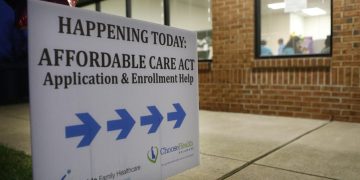It is a fact that today’s generations live far longer and healthier lives than our predecessors who were born less than one hundred years ago. The average life expectancy stands at 72.6 years based on 2019 data. This is significantly higher than for previous generations and has been shaped by several factors. Our diets and lifestyles have improved over the last one hundred years, and education has shaped our understanding of how to stay fit and well. However, one key ingredient in improved life expectancies has been the access to high-quality healthcare facilities for a growing number of populations around the globe. It is fair to say that modern healthcare systems play a vital role in helping people to live long and healthy lives. In this article, some of the key facts about modern healthcare systems will be discussed that enable society to have better standards of living.
Healthcare Creates Meaningful Careers
There is a vast range of occupations, vocations, and professions in the healthcare industry. Many of these roles involve direct patient contact, such as dentistry, nursing, and the work of paramedics. These roles are highly specialized careers and can offer employees meaningful and satisfying careers where they play integral roles in improving the health and wellbeing of society in general. For example, many people choose to go into the field of nursing as it provides a career that offers a variety of tasks and an ever-changing set of patients to care for when they need medical attention. No two days can be the same and nursing staff must be adept at making excellent decision making by applying the latest clinical knowledge to give excellent care consistently. Nursing can make for an exceptionally rewarding career. It requires a degree in nursing to allow entry into the profession. However, if you already have a degree you can undertake a second degree in nursing from University of Indianapolis to get the qualifications needed. Once you begin work in healthcare, there are numerous routes to progress and specialize, which again makes for a rewarding and fulfilling career that is characterized by personal and professional development.
Healthcare Can Educate Populations
It is a fact that modern healthcare systems can play an integral role in improving public health through public education programs. In turn, this improves knowledge of common healthcare issues in the public, which can give them the tools to live healthier lives. A key example is a rise in awareness of how to deal with cardiac arrests in society. Only a few decades ago, there was little clinical knowledge amongst populations on how to recognize and effectively treat a person who had suffered a cardiac arrest. Today, on an annual basis in Europe, there is a restart a heart day every October. This is a large-scale public education initiative where members of the public are encouraged to attend training sessions where they can be taught basic CPR skills and learn how to use a public access defibrillator to attempt to save the life of a cardiac arrest patient. Today there are significant numbers of public access defibrillators installed in towns and cities around the world. Ongoing public education programmes help to ensure that citizens can use this equipment safely and effectively if they witness a cardiac arrest in a public setting. Cardiac arrests are time-critical events where early intervention can dramatically improve survival outcomes and ongoing public education programmes help to make citizens true lifesavers until emergency services arrive.
For the Elderly
The population is aging in today’s world and access to high-quality healthcare for the elderly plays an important part in ensuring that standards of living remain high. As we get older, we tend to require greater access to healthcare facilities as our mobility can worsen and we require increasing amounts of medication to stay well. Healthcare facilities for the elderly, such as nursing and care homes, play an integral role today. Relatives of elderly family members may find that their needs can no longer be met in their own homes and specialist nursing care is required. This can range from assistance with feeding and taking medications to helping with mobility and social issues. High-quality healthcare facilities for the elderly ensure that their quality of living stays as high as it can in later life, and they continue to live enjoyable lives that are mentally stimulating.
Healthcare is Vital to the Economy
In many countries, the healthcare sector forms a significant part of total GPD and is therefore vital for a strong economy. In developed countries, healthcare forms more than 10% of countries’ GDP, and it is even higher in the USA at around 18%. A strong economy is reliant on a productive and efficient healthcare system. Healthcare jobs employ millions of people around the world, which further boosts economic growth. In addition, by having access to high-quality healthcare systems, patients can recover more quickly from many forms of illness, from minor bugs and infections to serious conditions. This can result in the general population having fewer days at work lost to illness and being able to work effectively for longer in life, further boosting the economy.
It Drives Improvements
A modern healthcare system relies on the latest technology and creates an environment where innovative technology and improvements in medical treatments go hand in hand. Healthcare has improved dramatically in recent decades with advancements in technology and medical research. Today, cataract operations and sight correction procedures are commonly carried out quickly and efficiently with minimal recovery times. This has been a direct result of improvements in surgical techniques and laser technology. Research into gene therapy is currently driving improvements in some chronic illnesses and has the potential to improve quality of life and life expectancies in general. In short, a modern healthcare system is constantly offering clinical improvements and better technology.
To Sum Up
Modern healthcare systems are an integral part of any economy and are constantly improving. Providing specialist care for the elderly, creating meaningful careers for healthcare professionals, and educating communities on health issues are some of the key roles these systems play in society.


























































